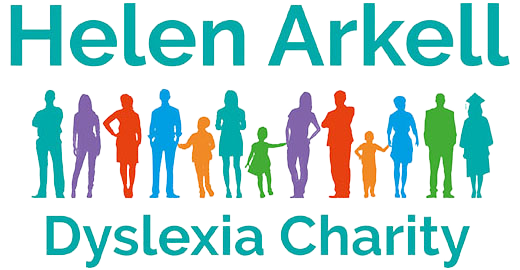Dyslexia assessments

At Helen Arkell, we offer a range of dyslexia assessments for adults and children. A dyslexia assessment will help someone understand their strengths, and why they may be experiencing difficulties in their learning or day-to-day life.
A dyslexia assessment will recommend how to support a child at home and at school and may be used as evidence for exam access arrangements, with prior consultation with the school or college. It may be used to apply for funded support at university, known as Disabled Students’ Allowance (DSA), and help someone discuss appropriate reasonable adjustments in the workplace.
It’s never too late to have a dyslexia assessment. We discuss reasons to have an adult dyslexia assessment here.
Choosing a dyslexia assessment
Assessments are available face-to-face or online, as appropriate.
Dyslexia Assessments by a Specialist Assessor
Our team of highly qualified Specialist Assessors (HASAs) can diagnose dyslexia across the age range from age 8.
Dyslexia Assessments by an Educational Psychologist
We also offer dyslexia assessments with Educational Psychologists (EPs). Our EPs are trained to assess for dyslexia in individuals who have a more complex range of possible learning differences, such as Autistic Spectrum Conditions (ASC), Attention Deficit Hyperactivity Disorder (ADHD), or significant mental health issues. We only recommend an EP when a learner has a complex range of needs. If there is involvement with a range of professionals already, then it may not be appropriate or beneficial for us to conduct further testing.
Educational Psychologists cannot diagnose Autistic Spectrum Conditions (ASC) or Attention Deficit Hyperactivity Disorder (ADHD), as these are medical conditions and require assessment by the appropriate health professionals.
Literacy Learning Assessments
For younger children (those aged below 8 are not yet old enough for a formal dyslexia diagnostic assessment), we offer a Literacy Learning Assessment with a Specialist Teacher. This is for children, primarily in school Years 1 and 2 (Key Stage One) and also early into Year 3, whose progress is giving cause for concern and who would benefit from additional and targeted intervention as outlined in the report recommendations.
Visual difficulties
To make sure that any literacy difficulties are not down to a visual issue, please ensure the person being assessed has had a sight test in the two years before an assessment takes place.
‘I really appreciate your support in getting H assessed so quickly and the kind, caring and supportive environment provided by the team at Helen Arkell that enabled H’s assessment to be as stress free as possible.’
‘I just wanted to thank you and your colleagues at Helen Arkell for your time and support through the assessment process yesterday. It was an extremely positive experience and the friendliness and courtesy of all the staff really helped. The assessment was extremely thorough, professionally conducted and I look forward to receiving my report’
‘Thank you for what was one heck of a report – I am bowled over. I took it into school and the SENCO said she had never seen one as thorough.’




